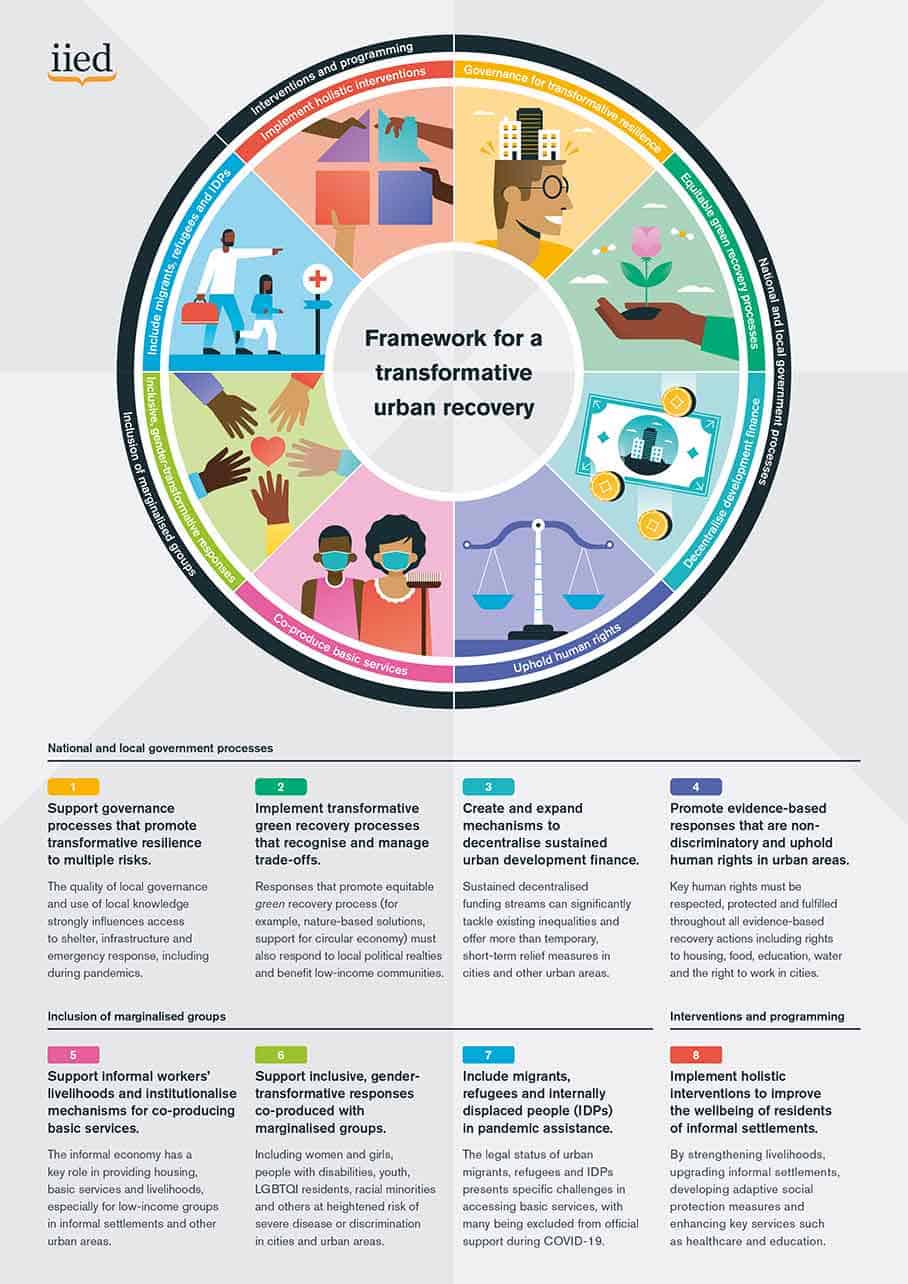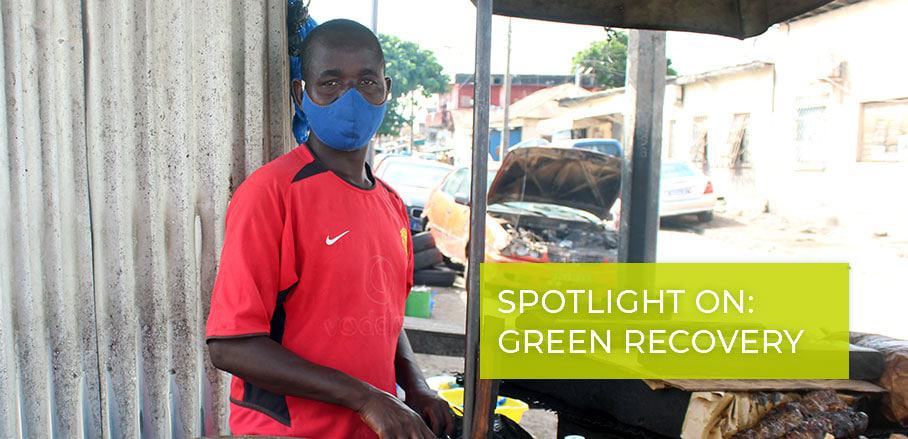COVID-19 in Cities – Pathways Towards Transformative Urban Recovery
Anna Walnycki and Alice Sverdlik present the new framework co-created by the IIED’s Human Settlements Groups and key urban stakeholders.
The year 2021 presents a critical moment in the evolution of cities, particularly in low- and middle-income countries (LMIC) that have been hard-hit during the pandemic. Urban areas in LMICs need COVID-19 recovery plans that can respond to the pandemic’s ongoing health, economic, and social burdens; tackle urban poverty and multiple inequalities that COVID-19 has only exacerbated; and promote resilience to future crises.
Such initiatives will be developed against the backdrop of a major global economic downturn, linked to recent cuts to Official Development Assistance and reduced municipal budgets. Addressing these interconnected challenges will be no mean feat! Collaboration and a shared vision will be essential to make progress. To advance equitable and farsighted responses, IIED has convened international agencies, researchers, and civil society groups in the Global South to co-create a framework that can guide transformative urban recovery processes.
COVID-19 in Cities: A Crisis on a Crisis
An estimated 95 per cent of COVID-19 cases are located in urban areas. The economic impacts are increasingly acute in cities across the Global South, where informal workers, people living in informal settlements, displaced people and other marginalised groups have been disproportionately affected. Many of the pandemic’s impacts are gender-inequitable and have contributed to a crisis in caregiving as well as escalating levels of domestic violence. Women are overrepresented in informal jobs and hard-hit sectors (for example tourism and domestic work) while also shouldering increased caring duties and often lacking access to childcare.
The initial wave of COVID-19 in LMIC cities was characterised by limited provision of appropriate social protection and emergency relief alongside strict lockdowns, disrupted supply chains, forced evictions, and other regressive interventions. This led to escalating levels of poverty and food insecurity for informal labourers and residents of informal settlements such as in Harare, Zimbabwe. Recently, the rise of more transmissible variants, in combination with overburdened health systems and persistent challenges in containing the outbreak, have deepened COVID-19’s impact across much of the Global South.
Learning from Local Responses
Local governments and residents of informal settlements have been particularly effective in mobilising and responding to COVID-19, having meaningfully reduced transmission and fostered solidarity during the crisis. Community health volunteers have raised awareness about COVID-19 and helped support vulnerable residents in informal settlements. Grassroots organisations demonstrated a tremendous capacity to respond to the immediate basic needs of low-income urban groups, and to develop more strategic responses to COVID-19. Policymakers can learn from these bottom-up responses when seeking to develop appropriate, equitable urban recovery processes, providing an alternative to prescriptive, top-down approaches.
A Transformative Framework for Future Cities
Although vaccines are being rolled out in some cities, there is no single pathway out of the pandemic, particularly for precarious informal workers and residents of informal settlements. Instead, a flexible approach is needed that supports multiple recovery pathways, while responding to prevailing uncertainties linked to COVID-19, climate change, and economic crisis. An inclusive, holistic vision can promote transformative recovery processes and spark the multi-faceted interventions urgently required to address the complex exclusions and risks facing low-income residents in LMIC cities.
Implementation will require ongoing collaborations between civil society organisations and key urban decision-makers; decentralised financial mechanisms and policymaking strategies; and equitable governance to foster resilience in the face of ongoing uncertainty, risks and disruption in urban contexts.
Co-Creating a Transformative Urban Recovery Framework
To respond to these challenges, IIED began hosting a series of workshops with international agencies, researchers, and grassroots organisations in autumn 2020. The following Framework was co-created in the ensuing discussions, which proposed a vision for policy and practice that can support a Transformative Urban Recovery. The Framework is rooted in the priorities and experiences of urban practitioners and key stakeholders during the pandemic, with an emphasis on tackling multiple forms of exclusion and focusing on informal settlements and informal labourers during the recovery phase.
The Framework recognises the pivotal role of equitable national and local government processes; advocates for the incorporation of marginalised groups into these processes; and prioritises the delivery of interconnected services and infrastructure. Comprehensive, citywide strategies are needed to provide affordable land, housing, services, and infrastructure as well as area-based upgrading measures. Such approaches can aim to promote co-benefits for health, climate resilience, and inclusive development, particularly for informal workers and residents of informal settlements.
Next Steps
Over the upcoming months, IIED will produce a series of publications on the Framework. In partnership with Cities Alliance, WIEGO, SDI, the Coalition for Urban Transitions and ICLEI, we will also host a series of internal thematic meetings and events in key urban policy spaces, including at COP26 and the World Urban Forum. With appropriate support and political will, we believe that this Framework can respond to the pandemic’s interrelated challenges in urban areas and catalyse opportunities for transformative urban change.

Framework for a transformative urban recovery © IIED
